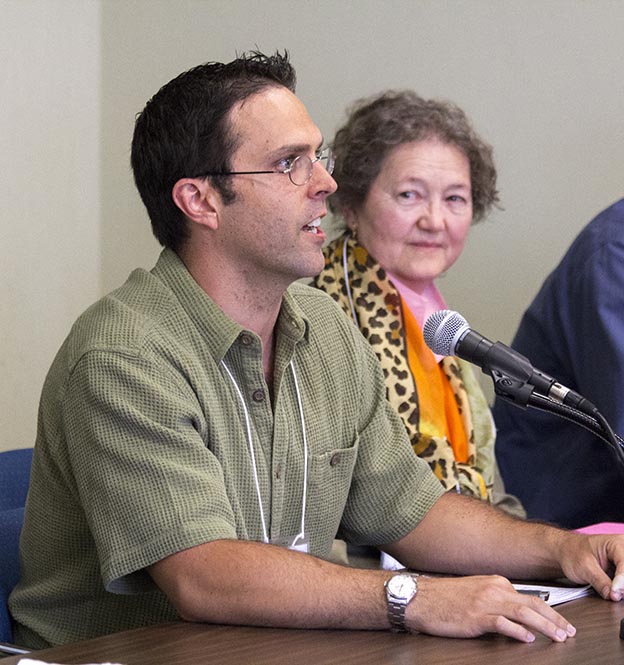Mobilizing the humanities

Associate professor of history Michael Egan was one of 11 McMaster researchers who presented at the Workshop on Knowledge Mobilization in the Humanities on May 6. Egan discussed how his collaboration with community partner Café Domestique, a cycling-themed café, has informed his own research work on re-imagining the bicycle in society.
More than 100 scholars, students, staff and guests gathered at McMaster Innovation Park on May 6 to celebrate the benefits of community partnerships and showcase how humanities research at McMaster has been mobilized for the common good.
The speakers included 11 researchers from the Faculty of Humanities, alongside their research partners from business, the community, health care, publishing, and the arts.
Topics ranged from collaborating on an activist theatre production, to re-imagining the bicycle in our society, to promoting Indigenous research by and for Indigenous peoples. The common thread of the day’s proceedings was how these partnerships are win-win – not only for the research conducted within the University, but also for the work of the collaborating partner.
Academic research across Canada increasingly involves multiple collaborators, and more often than not is interdisciplinary, keynote speaker Ted Hewitt, executive vice-president of the Social Sciences and Humanities Research Council (SSHRC) said. A three-time McMaster alumnus, Hewitt mentioned that a decade ago only 100 SSHRC grant applications included community partnerships. Today, that number is 2,200.
The free, day-long event, titled “A Workshop on Knowledge Mobilization in the Humanities,” was the first of three such workshops to be held at McMaster, said Mo Elbestawi, Vice-President, Research and International Affairs, who opened the day’s proceedings.
In his welcome remarks, McMaster President Patrick Deane mentioned that over the past decade there has been enormous progress in the mobilization of research knowledge into society. He noted there are now at least 90 terms – from “knowledge translation” to “technology transfer” – that describe the important process of ensuring academic research becomes active and effective in the world.
The term “knowledge mobilization” is defined as the movement of research into active service for the broadest possible common good.
The workshop was organized by the Office of the Vice-President, Research and International Affairs, in collaboration with the Faculty of Humanities. The day’s agenda can be found here.
